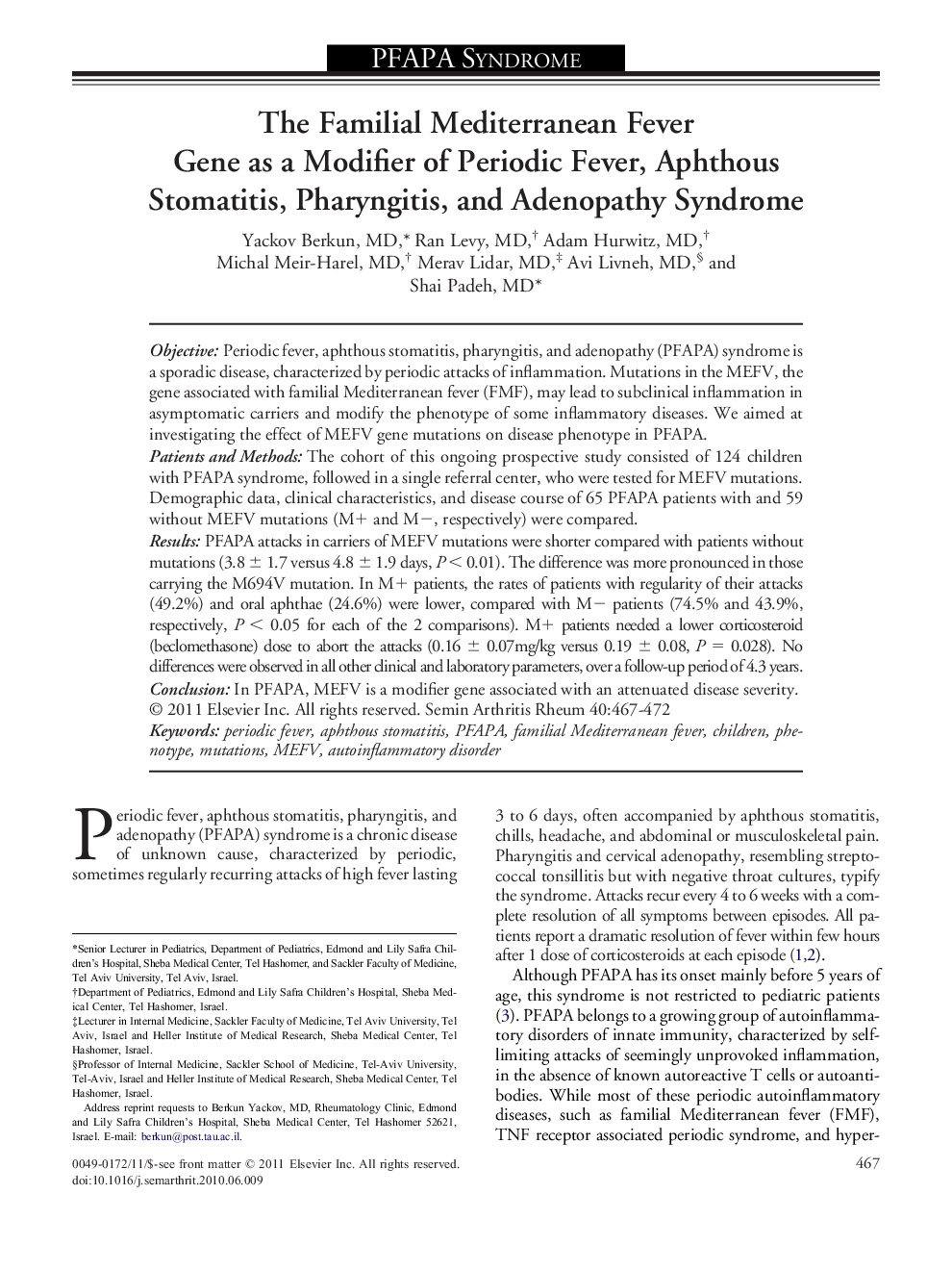| Article ID | Journal | Published Year | Pages | File Type |
|---|---|---|---|---|
| 2771677 | Seminars in Arthritis and Rheumatism | 2011 | 6 Pages |
ObjectivePeriodic fever, aphthous stomatitis, pharyngitis, and adenopathy (PFAPA) syndrome is a sporadic disease, characterized by periodic attacks of inflammation. Mutations in the MEFV, the gene associated with familial Mediterranean fever (FMF), may lead to subclinical inflammation in asymptomatic carriers and modify the phenotype of some inflammatory diseases. We aimed at investigating the effect of MEFV gene mutations on disease phenotype in PFAPA.Patients and MethodsThe cohort of this ongoing prospective study consisted of 124 children with PFAPA syndrome, followed in a single referral center, who were tested for MEFV mutations. Demographic data, clinical characteristics, and disease course of 65 PFAPA patients with and 59 without MEFV mutations (M+ and M−, respectively) were compared.ResultsPFAPA attacks in carriers of MEFV mutations were shorter compared with patients without mutations (3.8 ± 1.7 versus 4.8 ± 1.9 days, P < 0.01). The difference was more pronounced in those carrying the M694V mutation. In M+ patients, the rates of patients with regularity of their attacks (49.2%) and oral aphthae (24.6%) were lower, compared with M− patients (74.5% and 43.9%, respectively, P < 0.05 for each of the 2 comparisons). M+ patients needed a lower corticosteroid (beclomethasone) dose to abort the attacks (0.16 ± 0.07mg/kg versus 0.19 ± 0.08, P = 0.028). No differences were observed in all other clinical and laboratory parameters, over a follow-up period of 4.3 years.ConclusionIn PFAPA, MEFV is a modifier gene associated with an attenuated disease severity.
